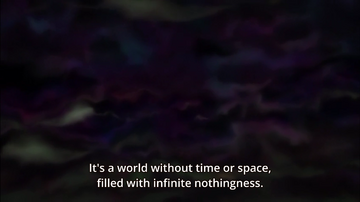The official discord link if you wish to join the discord: https://discord.gg/j5RKwCvAFu
Support the wiki on our official Ko-Fi page or Patreon page!
Mistranslations

Introduction
This article is to highlight the process of what mistranslations are and how they are handled on the site.
Mistranslations are defined by Merriam Webster as being, "a mistake in translating : an incorrect translation".
It should be noted that even if a company hires another one known for translating material into a language, it should not be treated as the objective interpretation of information. The source language is the most reliable and takes priority due to the simple fact its the unedited version which contains the intentions of the creator or producers behind the creative work. Mistranslations will often be caused by many teams having liberty in changing means, albeit to a limited degree most of the time. However, there will sometimes be very extreme cases where the translated version will sound nothing like the original.
Due to the nature of mistranslations, they should not be utilized for any sort of profile. This holds true even on composited profiles, as the original version is the intended interpretation of events. It should be emphasized that not every material needs to be translated from its original language for it to be added to the profile. It is helpful to discover if the information utilized on a profile isn't true to the original version, however, it would be unrealistic to demand every single instance to be translated and sourced.
If there is any information on a mistranslation, a content revision thread should be made regarding it. Another important idea to note is that not all translations will be grammatically correct in the structure of other languages. This shouldn't be utilized as a reason against using fan translations just because the unofficial version is not recognized by the entity producing the material. Mistranslations between eastern and western languages suffer from this further as they are divided earlier in the general etymology.
For example, "tener" is a verb meant to mean for "to have" in Spanish, while "estar" is meant to mean "to be" in the context of the Spanish language. Whenever an individual expresses age in Spanish, they utilize tener such as "Yo tengo doce años." However, in English, this translates to "I have 12 years". If we were going by the English outlook, it should be "Yo estoy doce años." This would be seen as grammatically improper and invalid in Spanish. It is because of this that companies will also change the wording for motivation to adapt it to similar yet not the same in a language.
Examples of Mistranslations
- The World of Void being infinite in size (refer to the picture above), yet only being stated as eternal.
- Culex stating to destroy timelines and be antimatter, yet the original version has nothing like this in it.
- The Golden Goddesses were said to have come from a distant nebula and the Triforce only had a fraction of the Goddesses power, yet the original just mentions they descended and didn't mention any nebula.
- Chirithy stating Sora was conceptually in pieces when he never said that at all.
Levels of Translation
Due to the use of mistranslations in both official material and fan-translated material it was agreed to put a set level of translation to which one would be the most accepted.
- 1. Official Translators: In this case official translators refers to people with a legal job as a translator. Do note this is not the same as a localization team as an official translator can still make fan works of products, such as Tomato, who made a fan-translation of Mother 3 and wrote an entire book on the English to Japanese differences of Mother 2.
- 2. Localization: In this case it's the original product itself officially translated by a localization team. While normally the translations are fine a localization team usually has to censor content or change content to fit the region of the world they're in. Something an official translator doesn't have to do for their fan works.
- 3. Fan Translations: In this case it's a fan translated work from a non-official translation team that knows the language. These are normally the least reliable due to the unprofessionalism, such as fan translators wanting to add jokes that weren't in the original script to be funny, or fan translators adding lines of dialogue that are not remotely the same as the original version. These should only ever be used if there isn't a localization or officially translated material.
